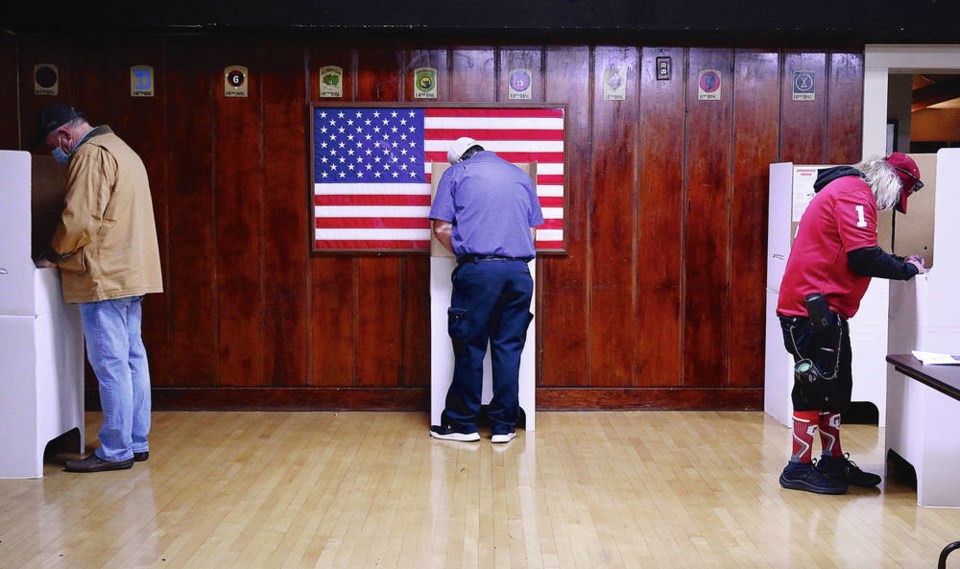Are you constantly refreshing your web browser to check the latest vote count in Georgia?
Do you suddenly know way too much about the number of mail-in ballots in Pennsylvania and the percentage that tilted Democrat or Republican?
Are you dreading the days and weeks of legal wrangling that lie ahead?
You’re not alone. Canadians were already on edge heading into the U.S. election, but the uncertain outcome Tuesday night and the likely recounts and court battles to come have only heightened that sense of unease.
At a psychological level, that’s understandable, given that we can’t vote or influence the election, said Frederick Grouzet, an associate professor of psychology at the University of Victoria.
“One of the main sources of stress is when people tend to focus on things they don’t control,” he said.
The best response often is to accept that we have no control and focus on controlling our reaction instead, he said.
But it’s tough not to worry when the U.S. has so much influence on Canada and the rest of the world.
Oliver Schmidtke, a political science professor at the University of Victoria, said it’s because there’s so much at stake that people are anxious about what could happen, particularly if Donald Trump retains the presidency.
“There’s deep concern about where America is going and whether the institutions on which the democratic process rest are still intact when you have someone in the White House who has a lot of disrespect for these very processes and resorts to a more populist style of governance,” he said.
And Max Cameron, political science professor at the University of B.C., said the strength of American democracy matters deeply to Canadians.
“If the United States democracy begins to collapse, the consequences for Canadians are kind of unimaginable and I think that’s something that people are responding to – is that uncertainty.”
That unease manifests itself in different ways. Cameron noted, for example, that he and his colleagues have put in a lot of work in recent years thinking about how to make UBC an anti-racist institution.
“It’s very discouraging when you put that effort in and then what you see is a [U.S.] president who engages in dog-whistle politics and appeals to people on ethno-nationalist terms be successful,” he said. “It’s disheartening to see that there are literally tens of millions of people who support that.”
Cameron said his response has been to try to model the best behaviour possible by entering into difficult conversations with respect as well as a desire to understand the other side and find common ground.
Trump doesn’t seem interested in that, he said. “He’s not someone who even really tries to persuade other people. What he tries to do is excite his base and intimidate his opponents. And to see the success of that can be pretty disheartening.
“But I don’t think that there’s any better strategy than to double down on being the opposite of that … to recommit ourselves to doing [things] in a way that honours the greatest values that we have as a civil society.”



